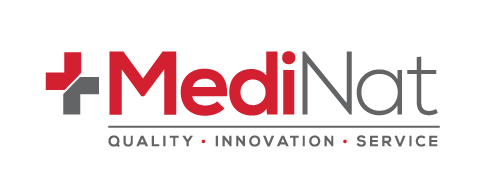Workplace Drug Testing in Australia: Balancing Safety, Compliance, and Employee Rights
Share
Workplace drug and alcohol testing in Australia is a complex area where employee safety and employee rights must be carefully balanced. Get it wrong, and you risk unfair dismissal claims, low morale, and reputational damage. Get it right, and you protect your people, meet compliance expectations, and strengthen workplace trust.
In this article, we outline how to design and implement a compliant drug and alcohol policy, reduce legal liability, and uphold employee rights across Australian workplaces.
Why Understanding Employee Rights Matters
Drug testing in Australia is not simply a matter of employer discretion. Employee rights must be respected, including requirements for consent, privacy protections, and procedural fairness.
In high-risk industries such as transport, construction, mining, and aviation, drug or alcohol impairment can have catastrophic consequences. However, a poorly designed testing regime can cause:
-
Unfair dismissal claims leading to legal disputes
-
Loss of morale and breakdown of trust
-
Regulatory complications with workplace safety bodies
-
Union challenges and industrial action
On the other hand, a fair, transparent, and well-communicated policy helps you maintain compliance, strengthen workplace safety, and support a cooperative culture.
The Fair Work Act and Workplace Drug Testing
The Fair Work Act 2009 sets the minimum standards for employee rights in Australia. While it does not directly mandate how drug and alcohol testing must be conducted, it provides strong protections against:
-
Unfair dismissal
-
Discrimination
-
Breaches of privacy
-
Adverse or unlawful treatment
Employers must ensure that drug testing policies and disciplinary actions are consistent with Fair Work obligations. Non-compliance can result in litigation, reputational harm, and costly disputes.
HR Compliance: Best Practices for Workplace Drug Testing
1. Ensure Testing is Justifiable
Testing should be linked to workplace health and safety risks, such as high-risk roles where impairment endangers lives. Arbitrary or unjustified testing exposes employers to legal challenge.
2. Develop Clear and Accessible Policies
Your drug and alcohol policy should be written in plain language and include:
-
Substances and cutoff levels tested
-
Methods (urine, saliva, breath) used
-
Procedures for administering tests
-
Consequences for positive results or refusal to cooperate
Where possible, align with Australian Standards (AS/NZS 4308:2023 for urine, AS/NZS 4760:2019 for oral fluid, AS 3547:2019 for breath). These are not legally binding, but they are widely accepted as best practice.
👉 Check out our range of urine drug test kits and oral fluid saliva tests that meet these standards.
3. Establish Fair Procedures for Positive Results
If an employee tests positive:
-
Discuss results with the employee directly
-
Offer counselling or a retest
-
Document every step of the process
-
Seek legal advice before dismissal
Employees must have the right to challenge results, including access to accredited retesting.
4. Safeguard Employee Privacy
Drug and alcohol test results are sensitive personal information and protected by privacy laws. Ensure:
-
Secure storage (encrypted systems or locked files)
-
Restricted access to authorised personnel only
-
Transparent communication on what data is collected and why
5. Consider State-Based Requirements
While federal protections apply nationally, privacy and workplace health and safety frameworks vary by state and territory. Contact regulators such as:
-
SafeWork NSW
-
WorkSafe Victoria
-
WorkSafe WA
When in doubt, consult the Fair Work Ombudsman or your legal advisor.
Step-by-Step HR Tips for Compliance
-
Policy Development: Write policies in plain English with clear expectations. Need help? Our policy support services can assist.
-
Consult Experts: Work with unions, legal advisors, and employees for fairness.
-
Avoid Discrimination: Apply policies consistently across all staff groups.
-
Maintain Confidentiality: Use accredited providers and secure systems.
-
Limit Liability: Document every step and consider rehab or return-to-work programs before dismissal.
FAQs on Workplace Drug Testing in Australia
Can employers randomly test staff in Australia?
Yes, but only when justified by workplace safety risks and outlined in a lawful policy.
Do employees have to consent to drug testing?
In most cases, yes. Consent should be part of the employment contract and policy framework.
Are Australian Standards legally required?
No. The Standards are not law, but they are recognised as best practice for defensible results.
What happens if an employee refuses testing?
Consequences must be clearly defined in the policy and handled consistently.
How MediNat Australia Can Help
MediNat Australia is a trusted partner for navigating workplace drug testing and compliance. We provide:
-
Onsite testing services delivered by experts
As a 100% Australian-owned company, we combine local knowledge with exceptional quality products and services. Our goal is to help you protect your workforce, comply with the law, and reduce risk — all at the best possible value.
📩 Contact the MediNat team today for a no-cost, no-obligation discussion about your workplace drug testing needs.
